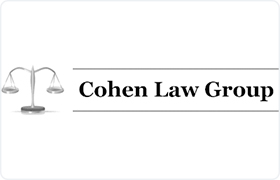Chelsea Real Estate Lawyer, Massachusetts
Sponsored Law Firm
-
 x
x

Click For More Info:
-
Cohen Law Group
500 Commercial St Unit 4R Boston, MA 02109» view mapBusiness, Real Estate, Accident & Injury Over 50 Years Of Experience
With over 50 years of experience, the Cohen Law Group is a well-established law firm located in the heart of Boston’s historic North End.
800-790-5110
Robert M. Strasnick
✓ VERIFIEDCriminal, Divorce & Family Law, Real Estate, Accident & Injury
After graduating from the University of Massachusetts, Rob attended the New England School of Law. He graduated Magna Cum Laude in 1997 and commenced ... (more)
Jordan R. Belliveau
✓ VERIFIEDAccident & Injury, Construction, Employment, Animal Bite, Nursing Home
Attorney Jordan Belliveau provides personal attention to each case he encounters and passionately represents his clients’ interests. He takes a tech... (more)
James H. Krumsiek
Banking & Finance, Bankruptcy, Commercial Real Estate, Foreclosure
Status: In Good Standing
FREE CONSULTATION
CONTACTMatthew E. Scafidi
Corporate, Business Organization, Collection, Commercial Leasing
Status: In Good Standing
FREE CONSULTATION
CONTACTFREE CONSULTATION
CONTACTFrancis J. Sally
Commercial Leasing, Construction, Corporate, Banking & Finance
Status: In Good Standing
Robert M. Mendillo
Banking & Finance, Corporate, Commercial Leasing, Construction
Status: In Good Standing
FREE CONSULTATION
CONTACT Herbert Cohen Boston, MA
Herbert Cohen Boston, MA Practice AreasExpertise
Practice AreasExpertise


